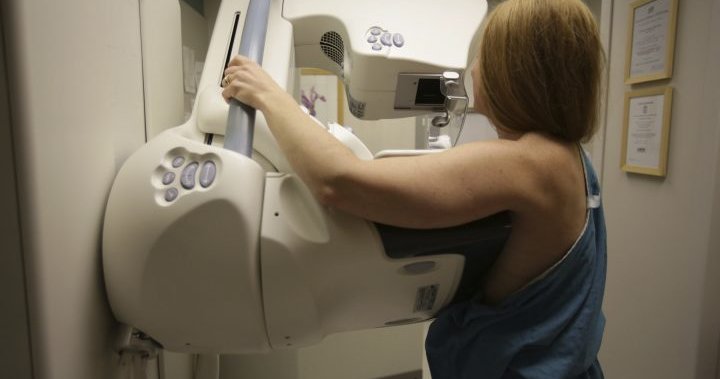
‘Outdated’ breast cancer screening guidelines failing Canadian women: report
Global News
Each province has its own set of guidelines and not all let women book their own mammograms in their 40s, when the risk of breast cancer increases, experts say.
Annie Slight has been battling breast cancer for the past eight years.
Since her diagnosis in April 2013, the Montreal resident has undergone 16 treatments of chemotherapy, bilateral mastectomy, a full hysterectomy and two reconstructive surgeries. Although now in remission, she still has two more years of hormonal drug therapy to go.
It has been ordeal that could’ve been prevented if she was diagnosed earlier, Slight says.
“If I had been given the proper screening, additional to the mammogram, the cancer would have been found at least a year and a half earlier. So that’s a long time for cancer to progress,” the 51-year-old who works in special education told Global News.
Slight got her first mammogram at the age of 40, which came back clear. However, what she wasn’t told at the time, was that she had dense breasts, which not only puts women at an increased risk of breast cancer, but cancer is more difficult to detect with a standard mammogram.
Slight’s case is not unique. A new survey by non-profit Dense Breast Canada showed that 30 per cent of women who had a mammogram were not informed of their breast density. That survey was part of a report published on Sept. 27 ahead of Breast Cancer Awareness Month.
Currently in Canada, six provinces – British Columbia, Alberta, Manitoba, Nova Scotia, New Brunswick and Prince Edward Island – add density information to mammogram results. In all other jurisdictions, radiologists don’t tell women their breast density category.
Ontario mom Nicola St. George was diagnosed with breast cancer in September 2019 – a year and half after her first mammogram, which did not detect anything at the time. She too wasn’t informed that she had dense breasts.











